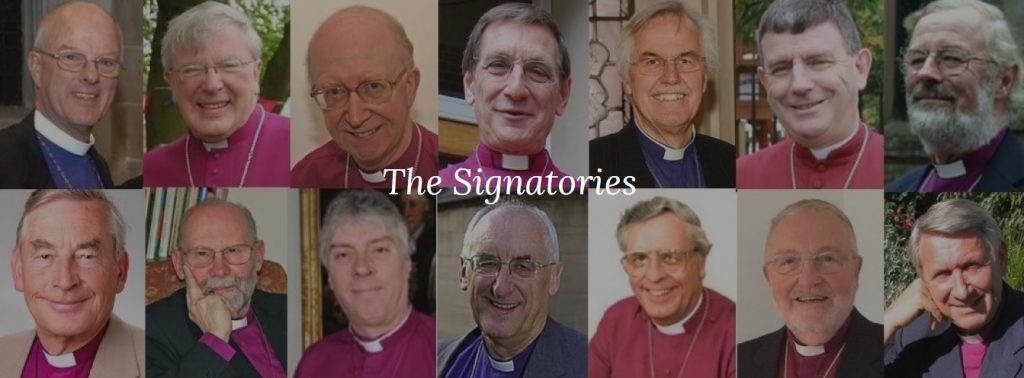Archbishop of Canterbury Justin Welby had strong words about the state of western politics at the opening of the General Synod of the Church of England in London yesterday.
The Guardian reports,
The archbishop of Canterbury has grouped Brexit and the election of Donald Trump with the revival of nationalism, populism and even fascism across the globe.
In his opening address at the Church of England’s synod, meeting this week in London, Justin Welby said: “There are a thousand ways to explain the Brexit vote, or the election of President Trump, or the strength in the polls in Holland of Geert Wilders or in France of Madame Le Pen and many other leaders in a nationalist, populist or even fascist tradition of politics.”
Although the C of E leader has previously suggested Trump’s politics and policies were based on fear and exclusion, his criticism went a step further by linking the US president in with far-right party leaders in Europe. …
Speaking of the church’s role and responsibility during such divided times, he continued,
“The Church of England retains influence,” he said. “We have at present the extraordinary privilege of sitting in parliament, the remarkable gift and responsibility of educating, chaplains in every sphere of life and a role in the public life of the nation. We have a heritage of presence across England, burdensome although it may sometimes be, and the vocation of being the default point of help and support in times of trouble, or celebration in times of joy.
“In the necessary reimagination of our country we cannot dictate but we must participate. Participation means being a listening, suffering and reconciling presence, not a hectoring, self-interested one. The language of public life at present is deeply, savagely divided and may become worse. Our power is found only in selfless service and the cross.”
Find the full address here.
The dominant topic of the Synod is likely to be sexuality and marriage. Last week, a group of 14 retired Church of England bishops sent an open letter to their active successors, challenging their submission of a report following up on the “Shared Conversations” program on sexuality and the church.
Most retired bishops would be prepared to admit that participation in the synodical processes of the church is not what they most miss about their role as diocesan or suffragan bishops. They also feel some reticence about entering into the current debates occupying their successors on the basis of information that is partial and becomes more and more dated with the passing of the years. There is a dilemma, though: you don’t work for years as a bishop and then easily and suddenly lose the bond you feel for the bishops, your successors and former colleagues. …
You write after the Shared Conversations. We well remember having had lots of those, even if they did not have capital letters. But their integrity rested on the assurance that in reporting them the voices of those who participated would not be drowned out by the ‘majority view’ or ‘established position’. Our perception is that while the pain of LGBT people is spoken about in your report, we do not hear its authentic voice. Our experience would lead us to doubt whether there was an expectation around that canons and doctrinal statements would be changed within any reasonable timescale, and that focus seems to have taken far more time than it would have done if the authentic voices of lesbian and gay people had been allowed to express the major focus of their hopes. Going down the road of seeking a change in the law or doctrinal formulation would indeed not have been realistic – but you might not have had to spend as much time explaining why if those other voices had been allowed to come through more clearly.
The result of that focus on the issue of a change in the law is that your call for change of tone and culture, while absolutely right, does not carry conviction. Indeed, from the perhaps luxurious perspective of retirement the tone and culture of your document are incredibly familiar – we’ve been there and talked in that tone of voice, and it prevents calls for a change of culture, of course offered in complete sincerity by you, from ringing true.
The debate over the Bishops’ Shared Conversations report, which “upholds traditional teaching on marriage as a lifelong union between a man and woman,” is scheduled for tomorrow.
The Guardian reports on the opening day here;
Find the Archbishop of Canterbury’s opening address here;
Read the full text of the retired bishops’ open letter here;
Find more General Synod news and reports here.
Featured image: fourteen retired bishops wrote to their active successors about their report to Synod on sexuality and marriage.

